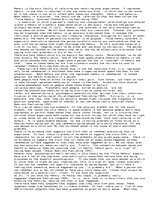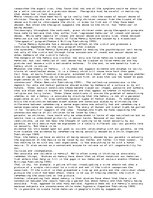-
Flash Memory
Memory is the main faculty of retaining and recalling past experiences. A repressed memory, is one that is retained in the sub conscious mind, in which one is not aware of it but where it can still affect both conscious thoughts, memory, and behavior.
When memory is distorted, the result can be referred to what has been called the 'False Memory Syndrome'(Thomas Billing Publishing 1995)
: a condition in which a person's identity and interpersonal relationships are entered around a memory of traumatic experience which is obviously false but the person strongly believes that it isn't. However, the syndrome is not only characterized by false memories alone. We all have memories that are inaccurate. Instead, the syndrome may be diagnosed when the memory is so severely disoriented that it changes the individual's entire personality and lifestyle, therefore, disrupting all sorts of other behaviors. The means of personality disorder is on purpose. False memory syndrome is especially destructive because the person carefully avoids any confrontation what so ever with any evidence that might challenge the memory. So this syndrome takes on a life of its own, keeping itself to be alone and resistant to correction. The person may become so focused on the memory that he or she may be effectively distracted from coping with real problems in his or her life.
…



